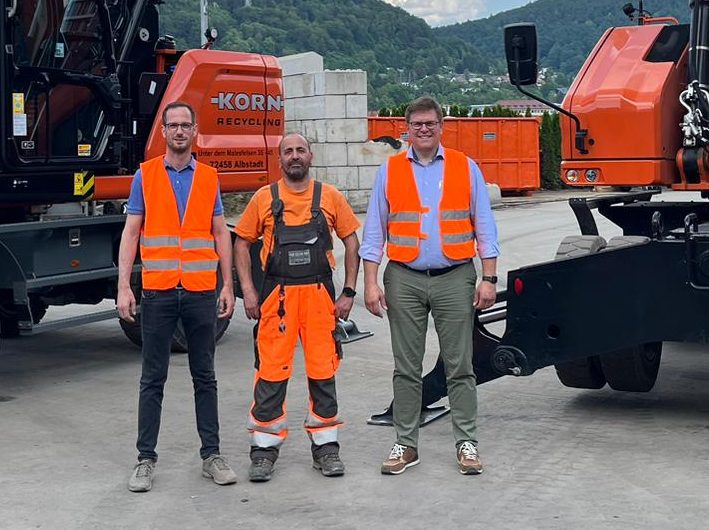100,000 tons of waste are delivered to Korn Recycling every year by companies and private individuals. The volume of waste is made up of commercial and industrial waste, bulky waste and municipal waste, which is recycled in the same way as mixed construction waste. These come from refurbishment and renovation measures, demolition and new construction. 4,000 containers are therefore in circulation and distributed among the customers. “We have powerful logistics and market all fractions on request,” says Alexander Korn, who runs the family business together with his brother Markus.
The certified waste management company Korn Recycling employs 210 people at its headquarters in Albstadt and at five branches in southern Baden-Württemberg. Our core competence is to make waste usable again.
X-ray, infrared and induction
One of the world’s most modern plants for sorting commercial waste and processing substitute fuels for energy generation in cement and power plants was developed. The company now uses the full range of X-rays, infrared light and induction. This is because high-tech helps to identify plastics, metals and minerals and to detect and sort out impurities, but also to maximize the added value of waste recycling.
Fire hazard with long lay times
“Our waste should not be left standing or lying around for long periods of time so that no pockets of fire can form,” says Alexander Korn. This is because e-cigarettes or rechargeable batteries end up carelessly in the waste and if the impurities remain undetected during manual sorting, this can cause major problems during mechanical treatment during disposal if their insulation is damaged. At Korn, too, the local fire department had to be called out time and again to extinguish fires.
The entrepreneur’s green footprint, which he had calculated for the first time in 2012, proves that it is definitely worth processing waste. The result: for every tonne of commercial waste that is sorted, processed and recycled, the company saves 690 kilograms of CO2 compared to conventional waste incineration. This amounts to 69,000 tons of CO2 per year with a waste volume of 100,000 tons. “This is our contribution to the environmentprotection,” says Alexander Korn, “there’s a lot of effort behind it.”
Cover photo: Korn recycling (Source: Zeppelin)

